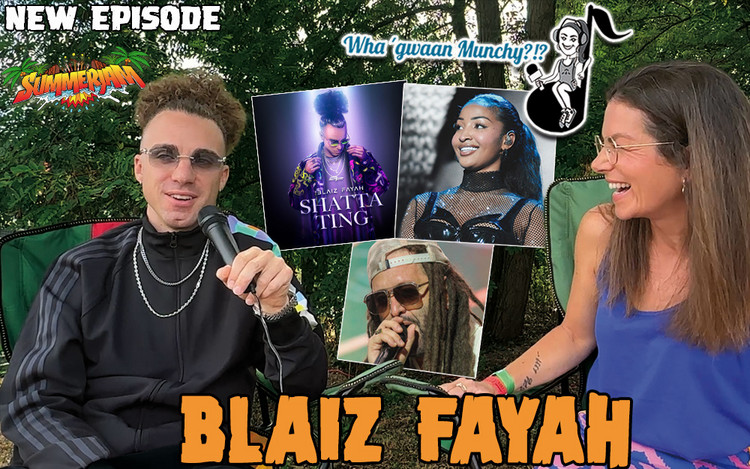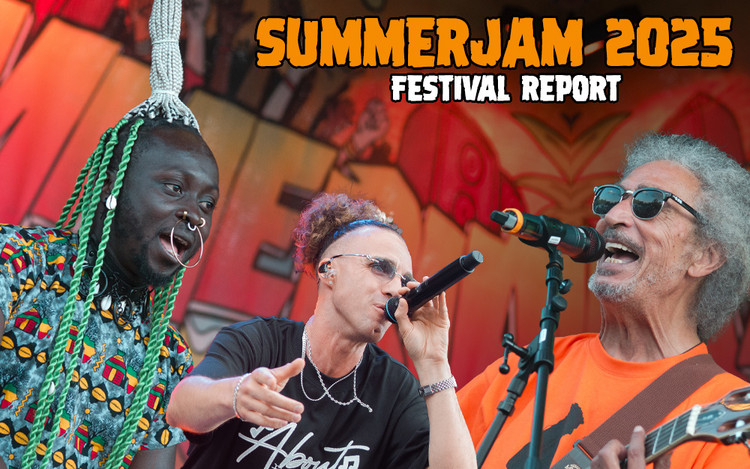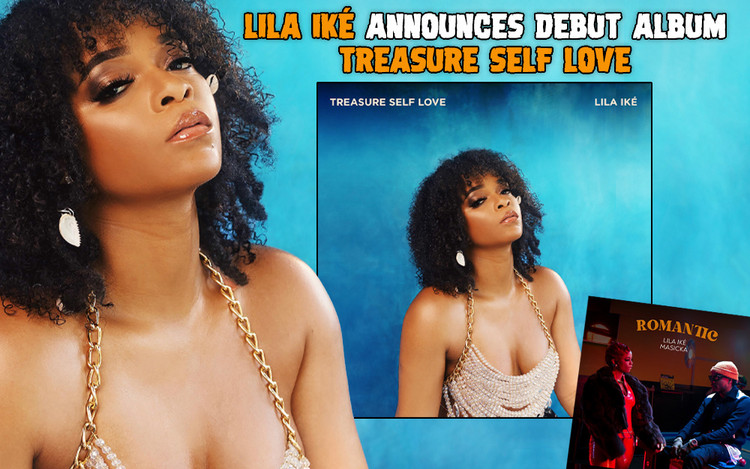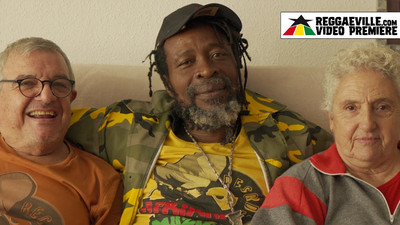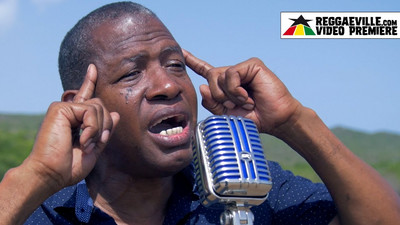Trinity ADD
Interview with Trinity - Natural Chanter
02/08/2020 by Angus Taylor
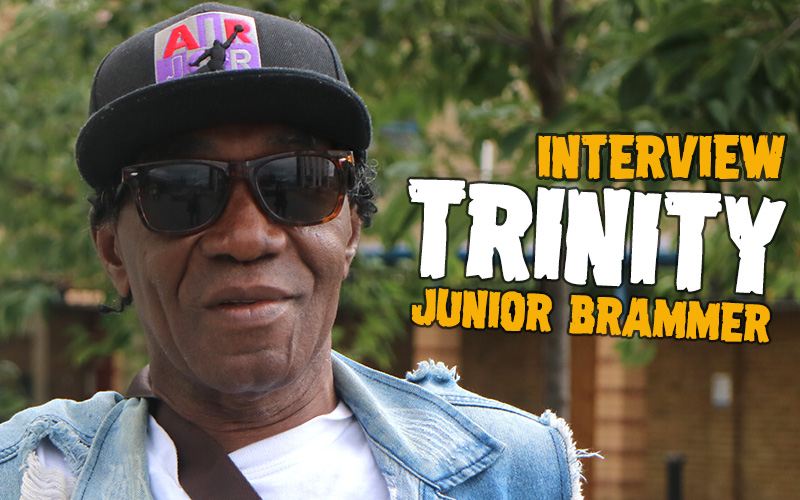
Wade Brammer, better known as Trinity, was one of the first Rasta deejays to take the microphone in the wake of Big Youth. Along with his good friend and mentor Dillinger, he chanted over some of the classic roots reggae rhythms of the mid-to-late 70s.
Having made a name on Kingston's sound system scene, he initially recorded for Enos McLeod, before moving to Channel One, Yabby You and Joe Gibbs. It was for the latter producer that he voiced international hit Three Piece Suit, on the rhythm to Marcia Aitken's cover of Alton Ellis' I'm Still In Love. The success of his deejay cut spawned a 1978 UK pop chart number one hit for female duo Althea and Donna - and arguably signposted the dancehall era that was to follow...
Over 40 years after he conquered the world, Trinity is still touring and recording. He's currently gearing up to release two albums in 2020. The first will be a collaboration with French group Zenzile (via Dub It Up Records) and the second will be a solo project (with French label and sound system Irie Ites).
Reggaeville's Angus Taylor met Trinity last September (2019) following his impressive performance with the Uppercut Band at One Love Festival in Kent. An arrangement was made to meet in Lewisham, Southeast London, for a career retrospective interview. On arrival at the hotel, it was discovered that Trinity had lost his bankcard (during the previous night's show with Congo Natty) and was eager to look for it. So once he had generously completed the interview, Trinity enlisted Angus and photographer Veronique to accompany him and Irie Ites to the Fox and Firkin venue - where the missing item was found.
Were you born in Kingston?
Yeah man. In Kingston, Jamaica. I grew up in Kingston 13, a place named Two Mile. It was a ghetto where there were a lot of things going on, good and bad.
What did your parents do for a living?
My mother usually worked in a government office and my father was a clay pipe maker. He made the pipe so the water could run from the earth to the bathroom but in those days they made it out of clay.
Was there music on your mother’s or father’s side?
My father could sing. My father was a very good singer. And I would usually hear him and wonder to myself "Why he didn't do recording?" Because he could sing.
Did he sing in church?
No, he didn't sing in church. He would always just sing naturally like when he was working and singing. He was bathing and singing. Anything he was doing he would try to sing.
Is it true that you went to Alpha Boys School?
Yes, in the early life. I went there but I couldn't stay because it didn't feel right or comfortable for me so I ran away.
How did you go to Alpha?
Because I was a… I wouldn't say a rude child… a child who grew up in a home and saw a lot of things run and you get frustrated and start to do things. And then my mum took me there for a while. And so I was there but I didn't like it so I left it alone and ran away.
What trade were you learning there?
Welding. But why I left the welding was because it flashed me. You have a thing named the flash so it caught me on the eye. I couldn't see for two days so I got scared and left it alone.
Tell me about how you got involved in sound system?
Well the first sound system was me and Dillinger - that was in Kingston 13. A sound named Smith The Weapon, VJ The Dubmaster and the next sound named Soul Hombre that me and Prince Jazzbo usually deejayed. And to a lesser extent a sound named Burning Spear. So those sounds we usually deejayed in the early days.
Can you remember when you first heard U Roy and Big Youth?
Well that was in the '60s. That was about ’67-’68. Somewhere around there. I heard them before that but I got interested in those times. I used to like U Roy, then Big Youth came along and he was a man who chanted, I liked the chanting thing, naturality, so I took on to Big Youth and said “Big Youth is my deejay”. Big Youth was my inspiration. And so that is why now people always say I sound like Big Youth. In certain songs you know? He was my inspiration, role model where deejaying is concerned.
Do you remember when you first took the mic?
Yeah man. It was 1973-74. That's when I first took the mic on a sound system. At the time it was excitement, you know? Because I used to love the deejay business. I used to love to sing and when I went to school at Boys Town School I would usually sing. But I found I started to like the deejay thing and Dillinger took me to the studio and from there on from the sound system to the studio.
Is it right that the first tune you recorded was for Enos McCleod?
Yes. Well he knew my mother and they were in the lane. Because we used to live in a lane in Two Mile Kingston 13. And he would usually come there and smoke his weed and he heard me deejay in the yard and he said “I'm going to record you, you know?” And we made an arrangement and went to a studio named Dynamic Sounds. Dennis Alcapone was in the studio too. I did a tune named Believe In It for Enos McCleod. That is my very very first song.
Did the tune do anything?
The tune was a nice little tune but he didn't have that power to promote it. Because you usually had the big guys like Joe Gibbs and other big producers like Coxsone and Duke Reid, Bunny Lee. Those guys were powerful in the promotion thing. So through he didn't have the money to do so it fell apart.
Your deejay name was Prince Charming and then Prince Glen?
Prince Glen. Well how that came about was I was Prince Glen and then one day I went to Channel One and I was doing a song and JoJo at Channel One said “What's your name?” I said “My name is Prince Glen, man”. And he said “No, I don't like that name” and he went for a Bible and came back and said to me “This is the name I want you to have”. I said “Which name?” And he looked in the Bible and he said “Trinity”. And right away I said “Yeah I like that name”. Because that name sounded powerful. And from that day until today... although I sing as well under the name Junior Brammer. 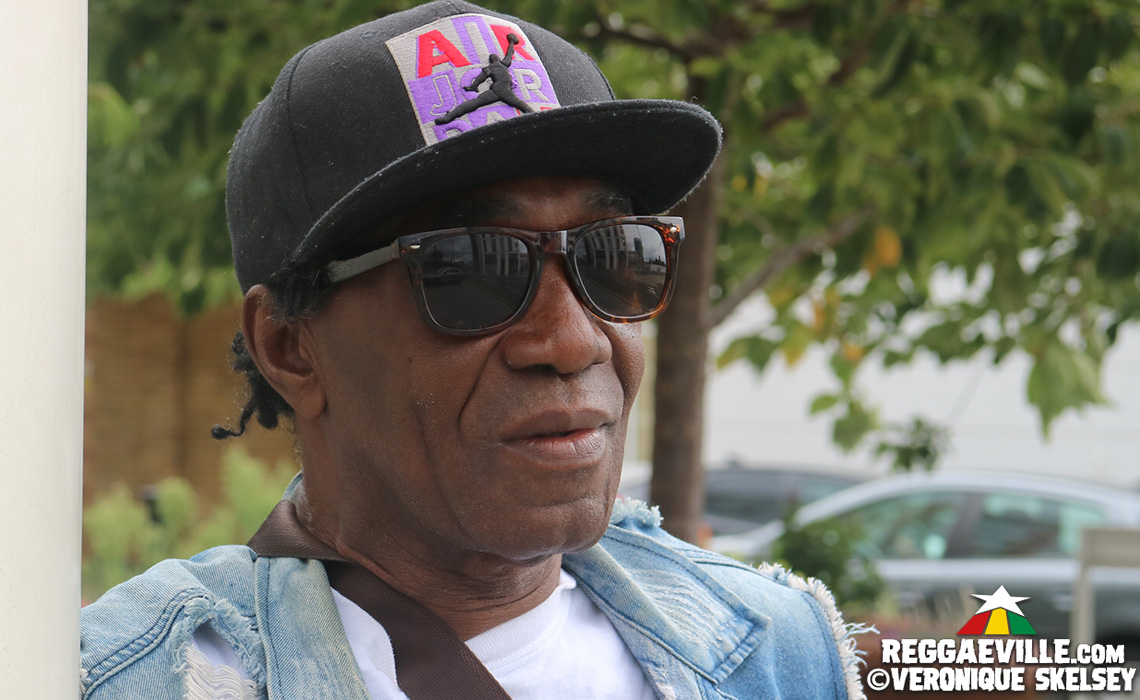
Tell me a bit more about your friendship with Dillinger and how he brought you to Channel One studio?
Well, me and Dillinger lived in the same vicinity. And he would usually come and check me in the day. And through him seeing my potential and deejaying on the sound system, one day he was going to Channel One and he said to me “Boy Toto” - because that's what he called me - “I'm going to carry you to studio with me today”. And I said “All right". And me and him went to Channel One and he was voicing the tune named Cocaine. I know it was that because I was giving him some little ideas. That's how I came to be recording in Channel One, because when JoJo heard I was telling him some ideas he said “You have the lyrics man. I want you to do two tunes”.
But it was Dillinger who took me to studio in those days. He was the first man who introduced me to the business because me and him usually played sound system and he knew my potential. I am not a failure where that is concerned. It's easy for me because me and him were friends and we would usually deejay toe to toe on the mic. So he knew it was an easy thing for me to go to the studio and for him to take me to the studio. I knew I would make him proud and I did make him proud.
And what was the tune that you did?
All Gone – “all gone but me life go on, the Natty Dread still deyah, the children of today they don't have no manners, they go to their bed and no say that prayers but Natty go there under manners". It was on the rhythm Have Mercy. With Mighty Diamonds.
And that tune was a hit?
Yeah.
So then you started to get some attention. From other producers.
Right. Yes. Because I started when I did those songs. I did one named School Days and the next one named Set Up Yourself. (Sings) “Jailhouse set me free” and so I was starting to voice for Joe Gibbs.
Enos McLeod was the gate man at Joe Gibbs…
Yes! Exactly. He was right there at Joe Gibbs. He usually lived there. So I was at Joe Gibbs and then I did Three Piece Suit. John Saw Them Coming. Starsky And Hutch, Blouse And Skirt, Top Ranking, a lot of tunes and then I did the LP Three-Piece Suit. Judgment Time. With me and Ruddy Thomas. Loving Pauper, yeah man.
Tell me a bit about Three Piece Suit. How it happened.
It was just like we were at a dance. And in those days a lot of three piece suits we’d usually wear. In the '70s. And there was a man in the dance dancing with a girl but he had on his three-piece suit and the girl was fat. So I looked at it and I thought “I could make a song of that”. And I started practising in my mind. I didn't deejay the song in the dance. Because I didn't want other deejays to hear it and steal it. So I secretly went where Dillinger usually recorded for Joe Gibbs and he took me to the guy named Errol Thompson.
The engineer.
Right. And Errol Thompson said he didn't want a new deejay. And Dillinger just said “No man, he’s bad, man. My apprentice, what you say Errol?” And he took me to the studio and Errol said to me “Do you want anything to eat?” and I said “No it's just the tune that upon my mind”. I wanted the tune because I knew it was a hit tune. It was boiling up inside of me.
Anyway I took the money because he kept on asking so I said “Alright then” and me and Dillinger went round to a bar and restaurant on Retirement Road and Brentford Road right down there. We bought two food and while Dillinger was eating his food and me was eating my food Dillinger just said to me “I hope you don't let me down, you know?'' I said “No man. One cut me a go take man”. And we went up by the studio and Errol had the tape on the machine already waiting. Sitting down because he knew he had got a hit tune. And when I went there I took one cut, one take and a guy was in the studio named Stafford from England who usually buys export records. He said he wanted 500 of this song. Because he knew it was a hit too. And the tune came out a hit tune and it got song of the year. It did well and Althea and Donna did a little thing…
Their song got to number one in the British charts. For one week.
Yeah. And I know I didn't get any money.
Really?
Nothing. Because too many people were claiming at the time. So I didn't get any money but it's my melody and my words. Because they froze the money because too many people were asking, saying that it was them that played this, them do that. So the people didn't know who to pay so they froze the money. I didn't get any money until today.
Did you get anything from it - did you get to go to England to do some shows?
Yeah in those days, yeah man. I came to England. But the first time I came to England it was just through Bunny Lee. And usually he had a guy named Count Shelly. They brought me to England and I did a show at a place named Bouncing Ball. All Nations. I went to Manchester, Reading, some little shows. You had a place named Four Aces so we did some shows around the place, me and Dillinger.
Three-Piece Suit - some people have called this the first dancehall tune. Before dancehall was a music, when dancehall was just a place. What do you think about that?
Well yeah, it was, I mean it was famous and yet it came from the dancehall. So I wouldn't say it was the first dancehall tune because you have a lot of tunes before mine but I understand what they are trying to say. Because it went international and people versioned it over. It's the first deejay song the people versioned. You understand? A lot of deejay songs are out there but people didn't do over back a deejay song. My song was the only song who they did it over and it went into the British charts. So that's why they say that.
Tell me a bit about your work with Yabby You…
Well, Yabby You was a little small man with his little bike and nobody usually respected him like that and recorded for him. But I know that sometimes you can't watch what a man has or what he is like, if he doesn't look like a big producer. You can do a thing to really help him or help yourself because you never know. So I just voiced for him because he is a spiritual person and I like those kinds of things there.
So me and him got together and did things together and lived at the same place and that's how we built up a relationship. So every time he had a good rhythm and wanted to do a disco 45 he wanted me and me alone, the only deejay who deejayed on his rhythms. I worked with him because me and him would go to studio and work at King Tubby’s sometimes. We’d do the rhythm at Channel One and then we go to Tubby's to mix and voice. But Yabby You was a producer where I loved to work with him because he always had some good ideas. And today a lot of his songs I have to do them on stage because his songs are an inspiration.
When you were working with Yabby You was that before or after Joe Gibbs?
After Joe Gibbs.
So you were a big star but you said “I'm going to work with this producer because I believe in what he's doing?”
Yeah yeah, yes man, yes man.
Tell me the story behind one of the more famous sides for Yabby You - Jesus Dread?
Well Jesus Dread, Yabby You was a man who would deal with Jesus. He was a Jesus dread. He was a man who would read his Bible a lot and talk about Jesus. So I just took the idea and said “Boy, I'm going to make a song named Jesus Dread” because Yabby You would talk about Jesus Christ and Christ and Christ and I grew up under his wings I was just inspired to do that song. Because I did that song after Yabby You. It is him that is why I did that song. Because it's him who gave me those vibes to make that song because we were together and he was Jesus Dread and then we started and I said to myself “I'm going to make a song off him.'' So I just said “Yabby You sound are the general sound” that means it's really not a sound system it's just his musically…
Just his musical sound.
Right right.
Did you appear at the One Love Peace concert? The 1978 Bob Marley concert.
Oh yeah in the National Stadium. Well it was an experience for me. Because that was the Bob Marley Peace Concert where politician and politician was there, you had Tivoli Gardens and you had Arnett's Garden. You had Michael Manley, you had Seaga, you had Michael Manley’s bodyguard and you had Seaga bodyguard, and badman and Claudie Massop and Burry Boy and all kinds of badman. So the show was a show where it was a mixed multitude thing, you had bad and good and you had good and bad. But Marley was trying to settle the peace, make peace with both sides and we were prepared to go there all of us to see because the country was in a bad state where violence is concerned. Because you had PNP and Labourite shooting one another and things. Bob Marley put on that show to bring the two leaders together. So it was not only a show it was to revolutionize the people together and show them that war is not the answer.
Bob Marley got the two leaders together on stage to shake hands and yeah when he did that I saw lightning. Because I was there, you know. It was a thing where yeah it was a spiritual vibes so at the time I'm I was proud to be a part of it because that was a naturality thing. Too much life was lost so we had to put an end to certain things and the musicians were the best institute to really make people come together. Because you cannot take any man off the street to tell people they have to make peace. You have to take up people who people look up to and then when they try to make peace the people follow. Because everybody has role models and Bob Marley was the biggest role model at the time, so he tried to make peace and see that people come together. 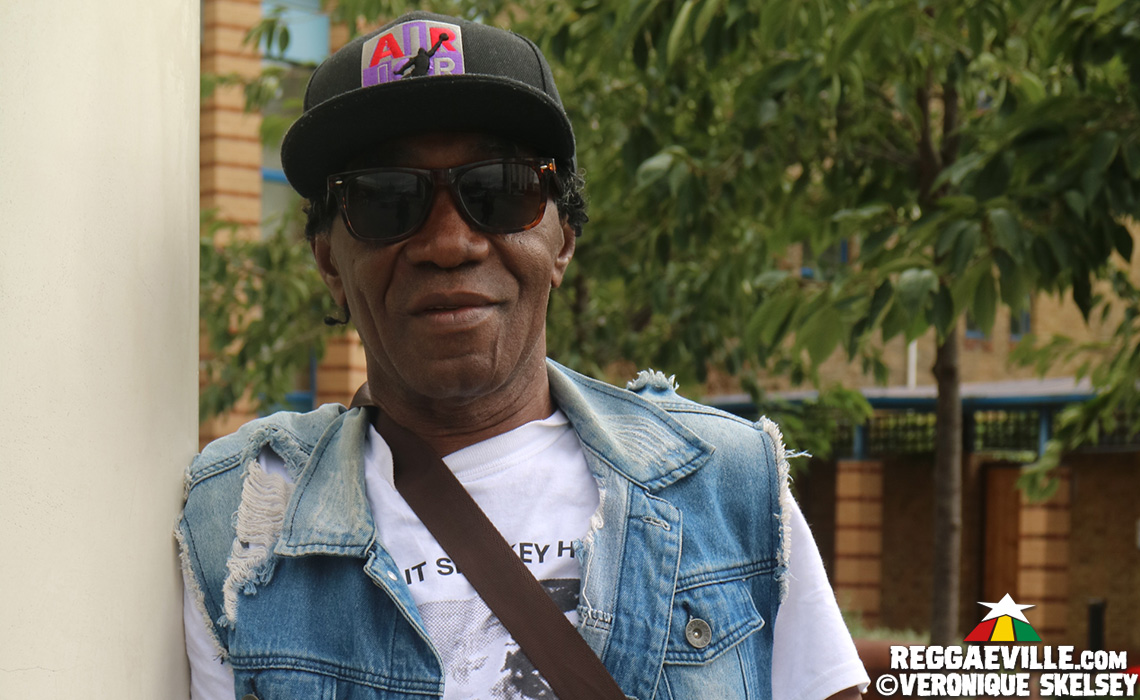
Is it true that you helped Barrington Levy early in his career?
Yes, in the early times, when me was the one who usually had him around me. Carry him around and try to introduce him to the business and put him on stage and have him around me. And carry him go to studio. I carried him go to Joe Gibbs and he did My Woman. I carried him go to studio and Joe Gibbs recorded him because at first Joe Gibbs didn't want to because Joe Gibbs said he didn't have a name. And I was there to do Three-Piece Suit LP. I had to voice so I said “I'm not voicing it if he doesn't want to voice Barrington Levy”. And so he voiced Barrington Levy.
But I usually had Barrington Levy with me everywhere I go, I carry him with me because I introduced him one time on a show at Scout Headquarters down by Camp Road and the Sagittarius band leader Derrick Barnett never wanted him to play because he didn't know him. And I said “No man, my youth man, my youth this, give him a chance, play a tune for him and make him sing a rhythm”. And he said “No” and I said “Boy” and I begged them and they gave him a bly. And the first tune he sang “was on my way up to Marverly" and he mashed up the place and from that he never looked back. He just started until he bust and Barrington Levy is a big artist today and I feel proud about that.
Tell me a bit about Clint Eastwood.
Yeah, that's my brother. Yeah because he was my brother and I saw the youth had a little potential I took him to Joe Gibbs. But the first song he did was a song named “Badder than Dillinger, tougher than Trinity”! (laughs) Dillinger didn't like it. Dillinger wanted to fight him! So I said "No man Dillinger" and me and Dillinger just started to quarrel but then it squashed down but I said "Fight him spiritually not physically”. He did a tune named Death In The Arena for Channel One so the tune was going on like it wanted to take off and Joe Gibbs came to me and said “Yeah your brother has a tune, I have the rhythm - why don't you go upon it too?” I didn’t hesitate at first but then I remembered the first song he did saying “tougher than me”! I said “Well right now I’m just go up to Joe Gibbs and do a tune”.
There was a series on the television named Starsky And Hutch and I did that song Starsky And Hutch and the tune took off and Clint Eastwood tune Death In The Arena was no more. Because the Starsky And Hutch killed it. And he wanted to fight me now and then I said to him “You see the first time I carried you to studio you do a tune saying you're tougher than me and badder than me. And now I did a tune and it conquered your tune and now you come and start to say you want to fight me. And you want money to do your things and yet you're my brother”. But he's my brother and I love him still.
Joe Gibbs and Channel One at the time were rival studios - which one was the best?
Channel One. Because Channel One’s music was more widespread in Jamaica because they liked the roots rock. But Joe Gibbs was a more top end studio, Channel One is a more bottom and Jamaica loves drum and bass. So Channel One was more than Joe Gibbs although I usually recorded for Joe Gibbs too but I have to speak the truth where music is concerned.
Tell me about how you started producing your own music and started your own Flag Man label...
Well this was Yabby You who forced me to do something for myself because through he was doing things and I was carrying his bag he said “My brother you have to make tunes too, you know?” So we started with the songs then. We started to make the songs and I started to build a little producing and I recorded myself on a tune with Barrington Levy and I did a song with Al Campbell and I started to do some little producing. But it was Yabby You who inspired me to go in the studio. And I recorded a guy named Michael Black who sounded like Slim Smith, but he died now.
In the early 80s you started a career as a singer under the name Junior Brammer…
Yeah in the '80s. That Junior came about because Willie Lindo who used to produce Beres Hammond.
He played guitar…
Right. One day I was singing a tune Ain't No Sunshine and he said to me “See Trinity you're a big singer man. I want to record you man”. And he said “But I don't want you to sing as Trinity I want you to sing as Junior Brammer”. So I said “No man I can’t, I'm there already Willie, man”. And he said “No man, just sing the tune under Junior Brammer”. So we went to the studio and sang a tune named All Time Bachelor.
In the 80s the deejay music changed. For example Big Youth didn't really like the way the music changed… how did you feel about it?
Well in life things have to move on. Things can't stay one way every time but it's how they go about it. Because they started to make the music with the computer and then the music started to have the digital sound and then the deejay would go on the rhythm and talk, but sometimes they’d talk with no clarity and you're not hearing what they are saying. They are just making up a lot of noise and then it really sounds annoying sometimes. To tell you the truth. Because we are used to the acoustic music that's more one drop and spiritual and you get a vibes from it. So yeah I prefer the vintage music because there is more melody in the music and it lives longer. Most of this music is disposable music. You hear it today and tomorrow it is no more. And so I prefer the vintage music. Feel it in the one drop.
Do you still live in Jamaica now?
Yeah man. I still live in Jamaica. I never moved from Jamaica. Because I'm a Jamaican first. I just love my country. I just go out there and work and come back.
How did you first link with Irie Ites?
It was in Jamaica at a studio named Tree Top. I was there mixing some songs, running down some songs and I came inside the studio he was recording. A guy that was usually around there named U Natty said to me “Give him a riddim, give Trinity a riddim”. And they gave me a tune with John Holt, Strange Things and I did a song named “Strange strange strange all over the world”. And from there we are working until now.
What recording projects are you working on at the moment?
Well I have a new album coming out with them called Everything Plug In. Just about to release. We did an album before that named Eye To Eye. 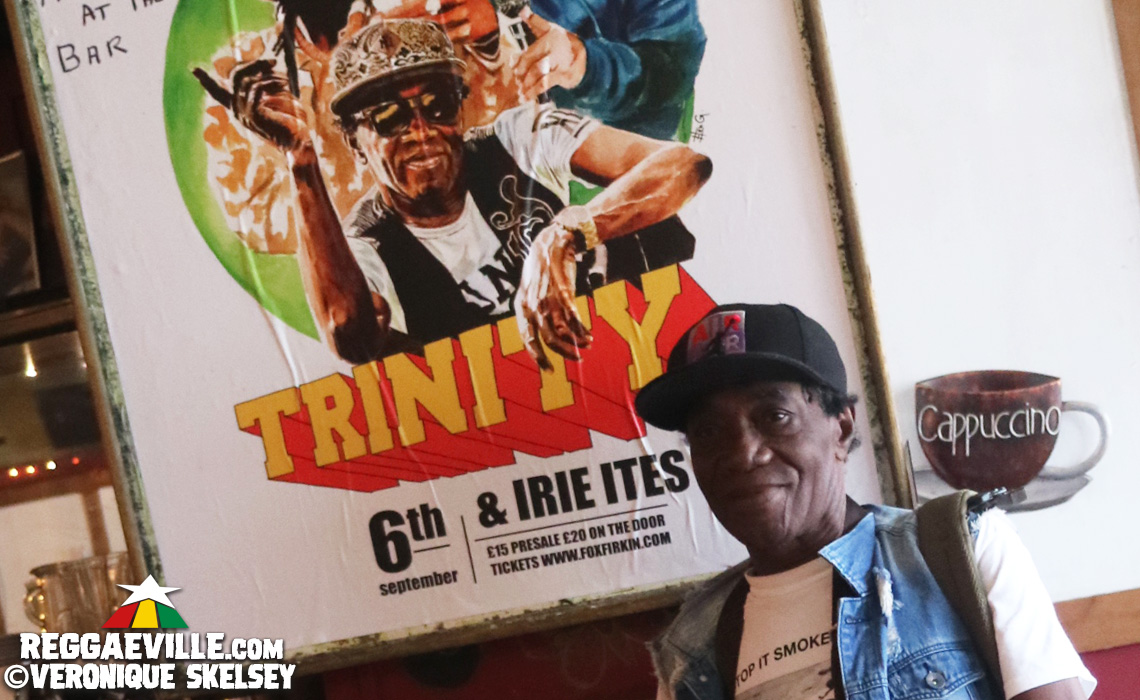
Yes I remember that one from 2013.
So this one now is a little more different. This one is more me because the first one was some other people singing parts of it, like John Holt and that. So we're working. We're working today.
When does the new album come out?
Christopher Columbus. With me and Ken Boothe. Ken Boothe is singing “There is a guy from Spain, Christopher Columbus was his name, down in the West Indies, that's how he made his name”. And then I say “Hey him was a blasted liar” - it's nice man.
What other singers are appearing on the album?
Linval Thompson sings a tune named Policeman and then I sing a few tunes on the album but it's me and Linval Thompson, Ken Boothe on these songs.
How was performing at the One Love Festival in England – over 40 years after the original One Love Peace concert?
Yes. Well, it was a good experience for me because it has been a long time since I've been in London. I enjoyed it because on that night I was spiritually inclined because I didn't know what I was coming into. So when I came to the venue I assessed it because it's how I work. I look at the crowd and see what I'm supposed to do. And what I'm not supposed to do. So I go there with an intention to work and work properly because I wasn't looking for a bad night I was looking for a good night. And I had a good night.
At One Love festival your daughter Rachelle sang on stage with you.
Well my daughter can sing you know? She takes everything from me. She resembles me, she does everything like me. She is a good singer, she just needs somebody to take her to the studio and record her. But the reason why I can't do it now is because she's living in England and she works and I'm living in Jamaica, so far apart. But anytime I get the opportunity I will because I can't afford to make her talent waste because she is good.




